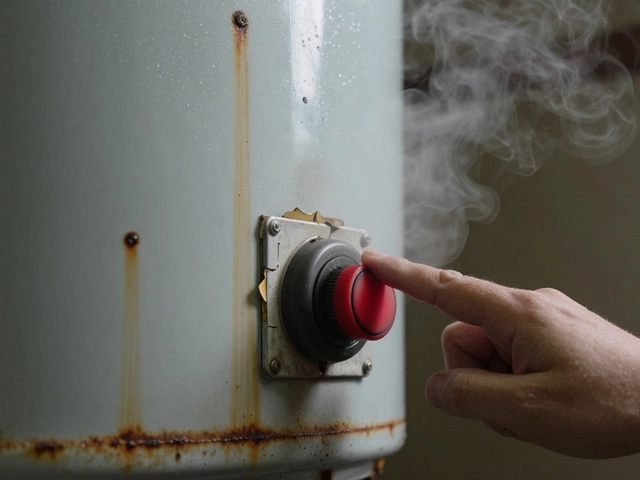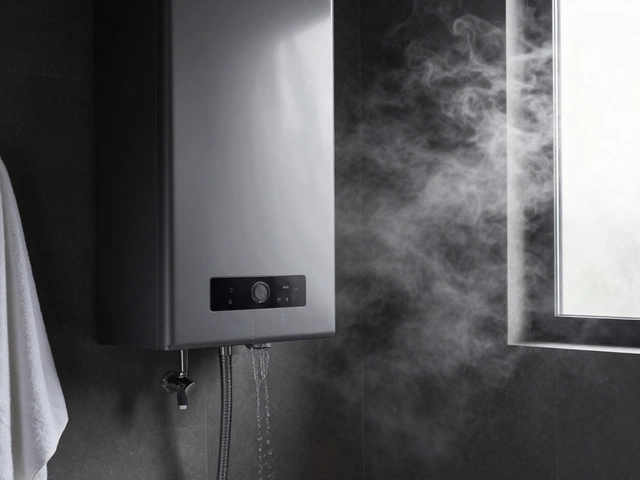Picture this: Your boiler’s humming along every day, keeping the house warm, dishes hot, showers steamy — and you just expect it to work. Then one frosty morning, the radiators are cold and nothing happens. It’s panic time, right? Here’s the thing nobody tells you: most boiler disasters sneak up slowly, and almost all of them are quietly preventable. If you’ve ever wondered whether regular boiler service is just a box-ticking exercise or if there’s real value in those yearly appointments, you’re not alone. Most people only notice their boiler when it lets them down, but the uncomfortable truths — and the money-saving tips — are in the details of what happens during a boiler service.
The Nuts and Bolts of a Thorough Boiler Service
So, what actually happens when someone comes to service your boiler? A good service is part science, part detective work. Think of the engineer as the Sherlock Holmes of heating: poking, prodding, testing, asking strange questions, and solving thermal mysteries before they become headline news at your breakfast table. It starts with a visual inspection. The engineer checks the outside and inside of the boiler for signs of leaks, corrosion, or black marks where something could be overheating or burning wrong. A common fact: over 10% of boiler failures actually start as minor leaks that get ignored — and most people notice them only when water starts appearing in mysterious puddles on the floor.
Next up, safety. You might not know this, but gas appliances — especially older ones — can sneak out deadly carbon monoxide if they’re not maintained. Part of every boiler service is to check the flue (the exhaust pipe) for blockages or weird colorations. If your flue has a white, sooty ring inside it, the boiler is burning wrong — not only wasting gas, but risking your family’s health. In the UK alone, about 60 people a year get badly sick from carbon monoxide poisoning, most because of dated, unchecked gas boilers.
The engineer will remove the boiler casing and look for worn seals, broken valves, stuck pumps, or loose wires. They physically check the burner and the heat exchanger for cracks or soot. Each electrical connection gets a gentle tug to ensure nothing’s about to pop loose and cause a short-circuit. They’ll test the pilot light or ignition (on modern boilers), making sure the flame is blue, not yellow; a yellow or lazy flame means incomplete combustion and lots of wasted money.
Water pressure is next on the list. Every boiler has a recommended operating pressure, usually around 1 to 1.5 bar. Pressure too low? The heating might stop. Too high? Well, you’re gambling with leaks and expensive repairs. The engineer checks and tops up the pressure if it’s out of whack, and if it keeps falling, starts hunting for the sneaky leak. For combi boilers, one especially important bit is the pressure relief valve — if it’s crusty or dripping, it’s time for a new one.
You’ll often see them test radiator valves as well. If your heating’s patchy — one room’s an oven, another feels like Siberia — the culprit is almost always a sticky valve or trapped air. During a proper service, the engineer will offer to bleed radiators (which means releasing trapped air), check thermostats, and talk you through simple maintenance you can do yourself.
Another part that’s checked: the expansion vessel. This is the bit that soaks up the change in pressure when your heating switches on and off. If the expansion vessel fails, you’ll get strange banging noises or constant loss of pressure. A quick tap and pressure check tell the engineer if it’s still got the right air cushion inside.
Adding some data for context, look at the numbers in this table — they’re UK averages, but they help you picture just how much gets missed when people skip boiler services:
| Check Performed | Failure Rate (If Not Serviced Annually) | Average Repair Cost |
|---|---|---|
| Heat Exchanger Check | 15% | £350 |
| Gas Safety Test | 13% | £250 |
| Pressure & Valve Checks | 10% | £140 |
| Full Cleaning | 12% | £180 |
Skimping on a service can literally double your odds of a midwinter breakdown, and most people don’t know it usually takes less than 90 minutes to get everything checked out.

Hidden Benefits and Safety Features in Boiler Maintenance
It’s easy to think of a boiler service as just another expense, especially when everything seems to be working perfectly fine. But here’s a fact the big gas companies won’t argue with: Regular boiler maintenance lowers your energy bills and keeps your manufacturer’s warranty valid. Most major brands will wiggle out of covering breakdowns if they find out you’ve skipped annual servicing — it’s right there in the fine print, but who really reads that until disaster hits?
The real magic happens in the safety checks. Every engineer is legally required to carry a Gas Safe card in the UK (or equivalent license abroad). If the person turning up can’t show you one, show them the door. This isn’t just about red tape — it’s your family’s safety on the line. Without these checks, about 60% of dangerous gas leaks would go totally undetected until symptoms appear or someone gets sick.
Another overlooked part? Scaling and debris inside the boiler. If you live in a hard water area (like most UK cities do), limescale builds up inside the heat exchanger and pipes. Over just a couple of years, a boiler in a hard water spot like London can lose 25% of its heating efficiency because of scale. During a full service, the engineer may use special tools or recommend a chemical flush if things are building up — in the long run, this pays for itself many times over. And if you thought the engineer’s job was just the boiler, think again. They’ll check the thermostat settings, timer controls, and (if you ask) help set them for best energy savings. Sometimes those fancy new smart stats get reset after a power cut and waste energy running in the background.
Here’s a tip that came in handy for me, after a very expensive winter: ask your engineer whether your system needs inhibitor fluid. This magic potion coats your pipes and radiators, stopping rust. If your radiators are sludgy or your heating’s slow to warm up, it’s a dead giveaway that you need more inhibitor — ask during your service, it’s not pricey and can stop serious problems.
When it comes to gas leaks, nearly half of all minor incidents are fixed during routine servicing. Leaky joints, dodgy hoses, or loose connections might seem minor, but when left unchecked, they’re the cause of most callouts. If you smell gas, open windows, leave the house, and call your supplier — but the best way to avoid that totally is with annual checks. And, yes, a carbon monoxide detector is a cheap safety net every home should have. Install one in the room with your boiler; it hums quietly in the background and could literally save your life.
Maintenance isn’t just about what you see in the moment, it’s also about preventing nasty surprises. For example, a neglected boiler is the number one cause of unexpected breakdowns during Christmas holidays, when callout charges can triple and parts are harder to find. Don’t get caught out. Ask your engineer for a written report of what they’ve checked — keep this handy, because it helps with insurance claims and warranty calls.
Got pets like my rambunctious dog Rufus? Double-check that your boiler’s air vents aren’t blocked by pet hair — something even the best engineer can miss if it’s out of sight. Clogged vents make boilers suck in less air, so they can’t burn as cleanly. Simple rule: no grill, no thrill — keep ‘em clear.
Speaking of safety extras, some engineers test for water chemistry as well, especially in older houses. Corrosive water can slowly eat away at valves and heat exchangers — a quick test strip can tell if your system is at risk, and a little treatment can add years to your boiler’s life.

Tips for Getting the Most Out of Your Boiler Service
If you want a headache-free winter and low bills all year, there are practical ways to get more value from your boiler service. Here are some ideas that have saved me, my spouse Harper, and even Rufus (who hates cold floors) from expensive heating chaos:
- Book your boiler service in late summer or early autumn. Most people wait until the first frost, but that’s exactly when the pros are booked solid.
- Keep a simple log of service visits and any repairs. You don’t need a fancy app — a sticky note on the cupboard works. This helps spot patterns (pressure dropping every winter? That’s a leak) and proves you’ve kept up maintenance for warranties.
- Ask the engineer to explain anything unclear. Don’t be embarrassed — you’re paying them, and the more you understand, the less likely you’ll overlook something important.
- Find out what’s covered in your service and what’s not. Some cheaper services skip key gas safety checks or barely check the radiators. If it seems like the engineer is in and out in fifteen minutes, raise an eyebrow and ask for the checklist.
- Test the heating before the cold snap. A boiler service can only do so much if the heating’s been off for months — try running the radiators for 10 minutes in late August to make sure there aren’t any surprises when it counts.
- If your house feels unevenly heated, ask about balancing your radiators. This small job can give a big comfort boost and reduce cold spots.
- Consider adding a magnetic filter, especially if you have an older system or live in a limescale-heavy area. This collects metal flakes and gunk before it reaches your boiler, drastically cutting down on breakdowns.
- Keep boiler manuals handy. If you ever need to call for emergency repairs, you’ll skip the guesswork and help the engineer fix things faster.
Let’s not overlook the money — according to UK government stats, getting your boiler serviced every year saves the average household £70-£120 in energy waste, and more if a breakdown is prevented. Multiply that by a decade, and your ‘just in case’ habit pays for itself many times over.
Nobody loves paying for what-if scenarios. But if you treat your boiler a bit like your car — regular service, eyes open for weird noises, and fast responses when things aren’t right — you’ll dodge the worst headaches. The full list of jobs in a boiler service isn’t rocket science, but it does add up to safer homes, warmer rooms, and fatter wallets. And if you’re like me, anything that keeps Harper comfy and Rufus curled on his bed through the coldest nights is worth every penny.
One last stat: heating and hot water use about 55% of the typical UK energy bill. If your boiler is slacking off because it’s gummed up or poorly adjusted, you’re throwing money out the window — sometimes without even knowing. The real win is when you notice, mid-December, that the house is cozy, the bills are steady, and there haven’t been any unexpected ‘uh-oh’ moments from the utility closet. That’s peace of mind you can feel — and you’ll never get it from skipping on your boiler’s yearly check-up.
Real talk: a boiler service is one of those small annual habits that makes life at home run smoother, saves real money, and — above all — keeps your family sleeping easy every night, all winter long.


